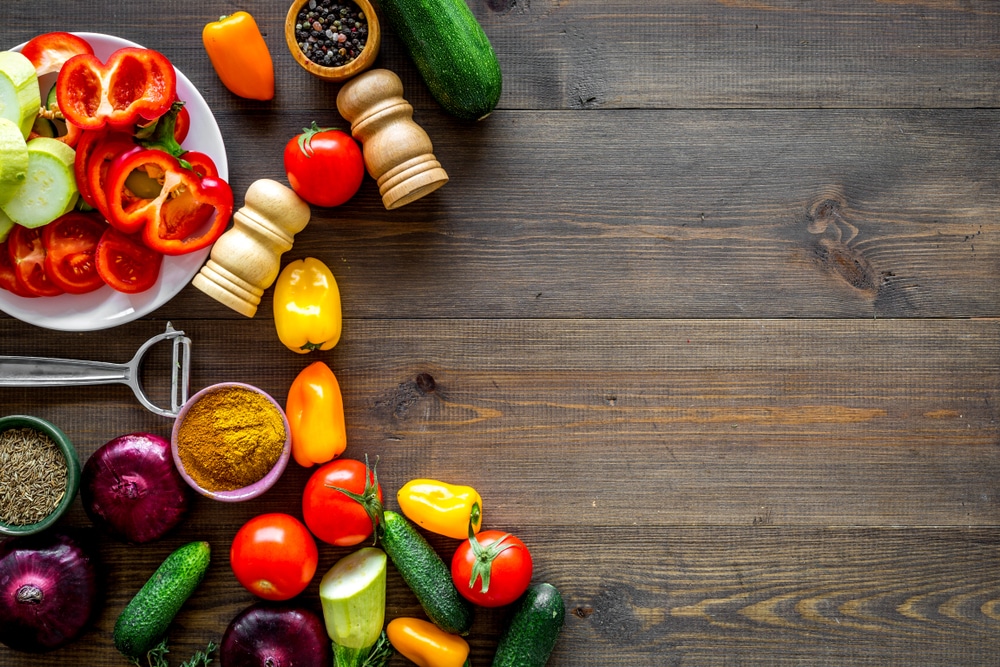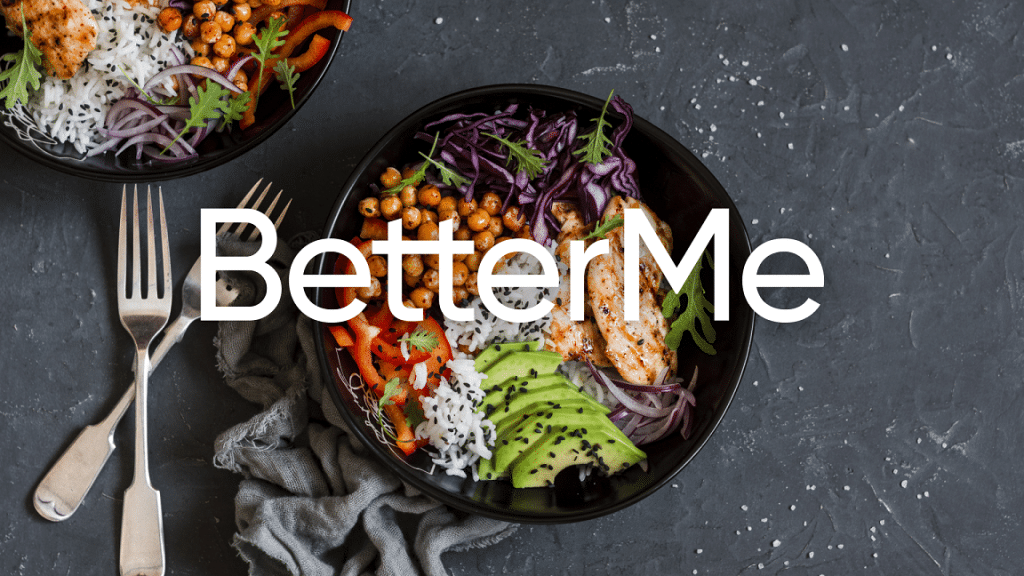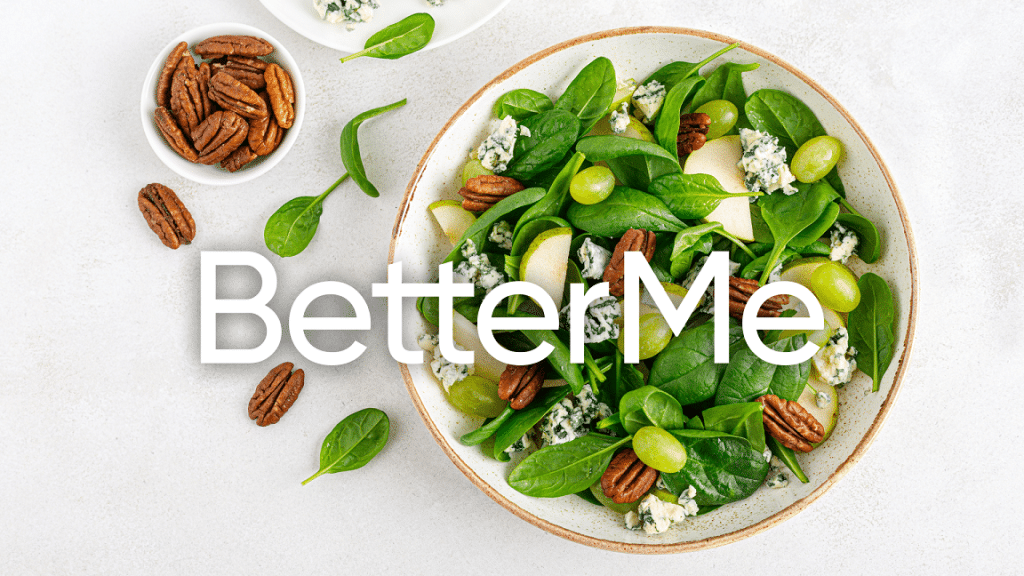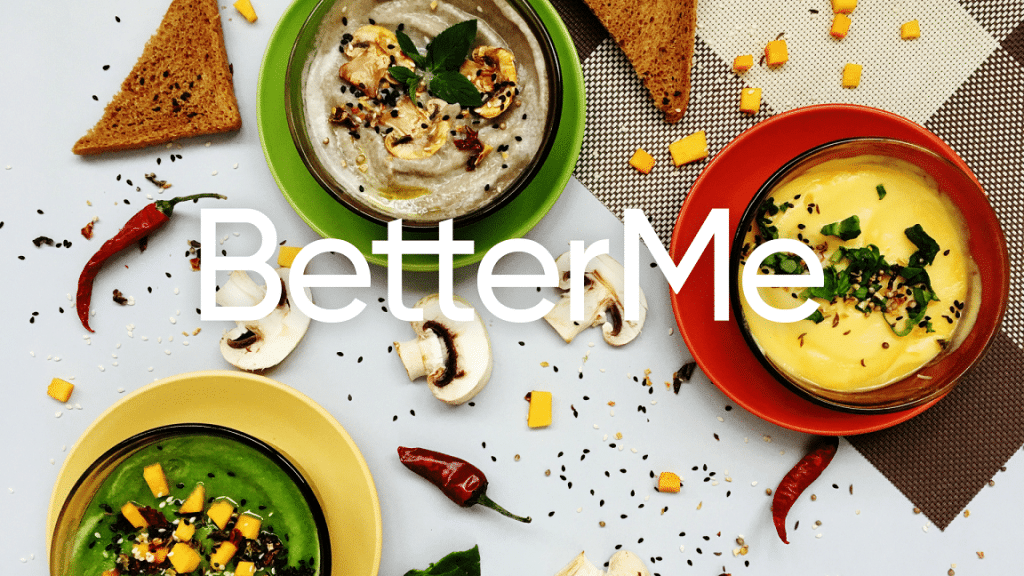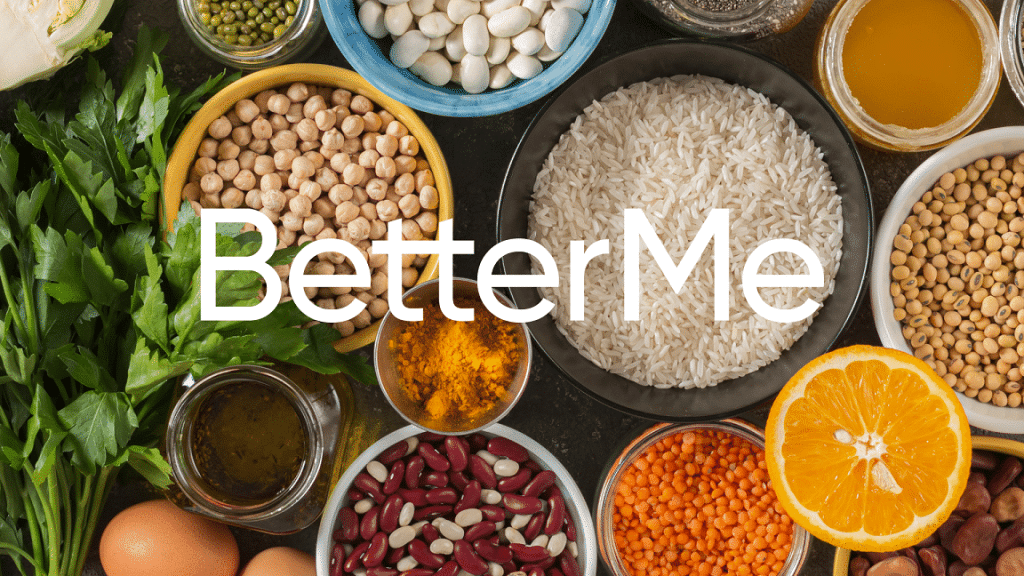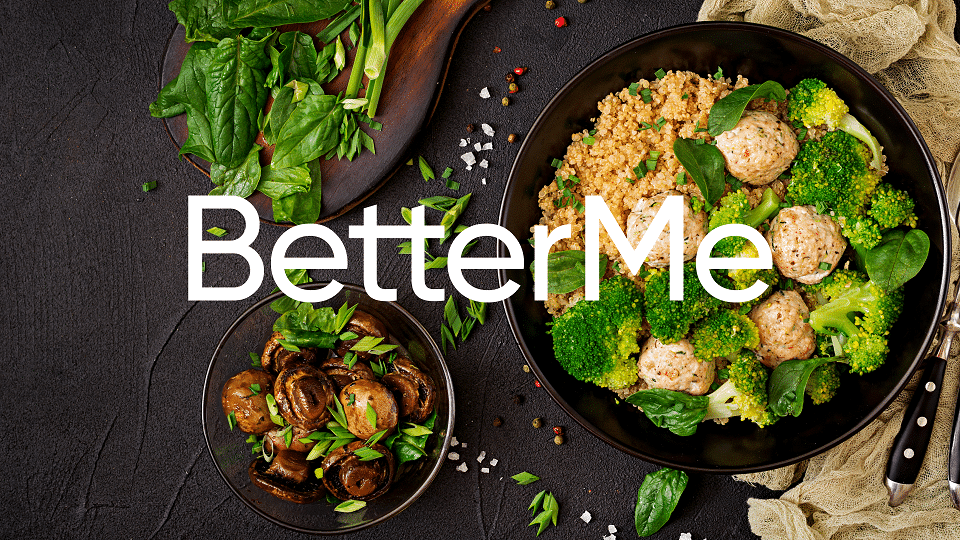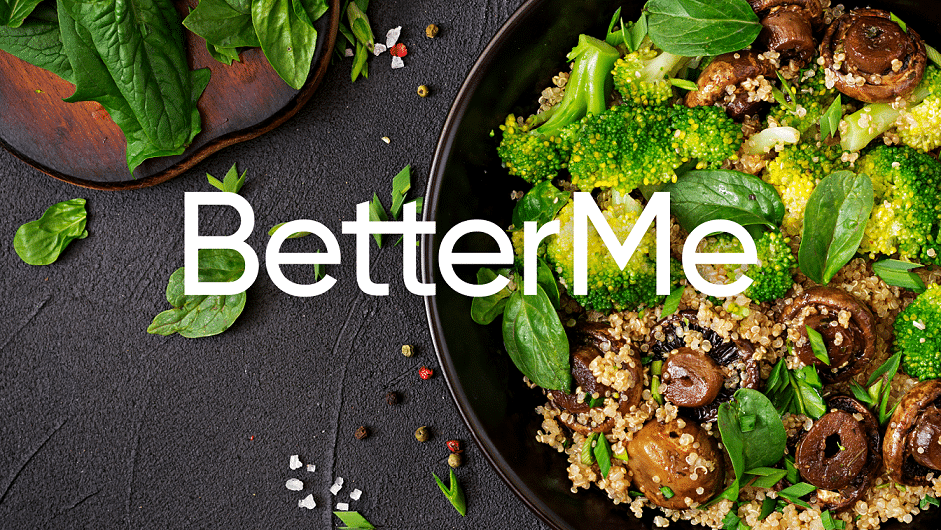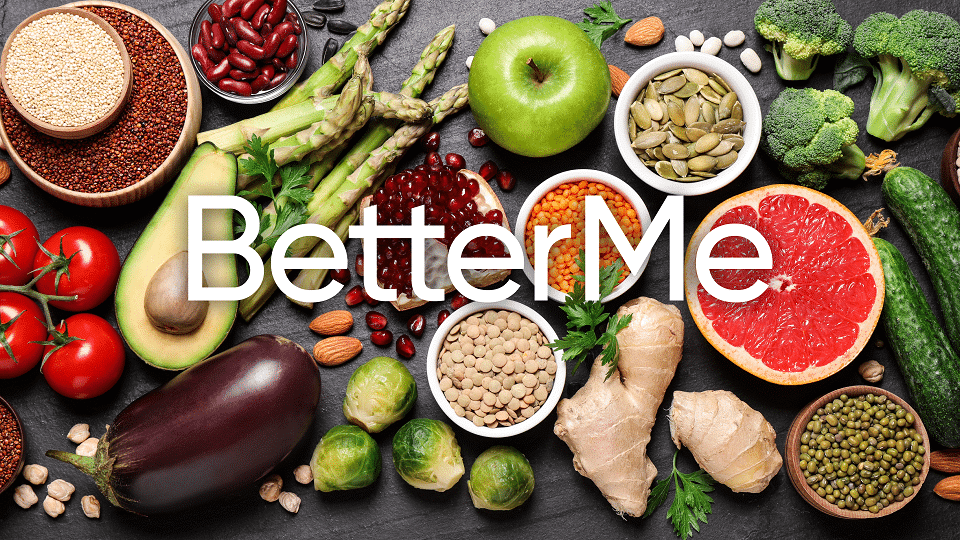The first step towards living a healthier lifestyle is making sure that you stock up your fridge with healthy foods to eat everyday. Not only could this help you reduce and manage your weight, but it also keeps you healthy whilst protecting you from numerous illnesses.
Get your personalized
meal plan!
Despite the advocacy for a healthier and more wholesome diet, one can be left wondering as to what foods you need to eat every day to become healthy. In this article we are going to give you a detailed list of healthy foods to eat everyday and their benefits, as well as show you how to eat healthy foods every day.
What Are Healthy Foods To Eat Everyday?
Every year, more and more food companies go out of their way to increase the amount of processed foods that end up on the shelves of our local supermarkets. According to the World Health Organization, this increase in the production of processed foods, rapid urbanization, and lifestyle changes in the population has led to a shift in dietary patterns.
Sadly this shift is anything but good. People are ending up consuming foods that are high in energy, fats, free sugars, and salt/sodium, while everyday, eating less and less of wholesome and healthy meals. If this sounds like you and you are wondering what foods to eat every day to be healthy, your first step should be looking towards a healthier diet.
What Is A Healthy Diet?
This is a meal plan that heavily emphasizes on the consumption of all the major food groups i.e.:
- Whole grains and foods such as breads, cereals, rice, pasta, noodles etc.
- An array of different vegetables and legumes
- Fruits
- Dairy products such as milk, yoghurt, and cheese. Anyone who does not consume dairy due to health reasons or preference can opt for plant-based alternatives
- Lean meat, fish, poultry, eggs, nuts, and seeds
The foods you should eat every day to stay healthy must all fall in the above-mentioned categories. Your healthy diet should also:
- Stay within your recommended calorie intake
- Include a total fat intake of no more than 30%. Saturated fats should be less than 10% of the total intake while trans-fats should be less than 1%
- Have less than 5 g of salt a day. The recommended sodium intake is about 2300 mg per day (1 tsp of salt)
- Have less than 10% of free/added sugars
Read More: How To Start A Healthy Lifestyle: Simple Habits To Kick-Start A Healthier Lifestyle
The Top Healthy Foods To Eat Every Day
On this list, we will be outlining the best healthy foods to eat every day (or at least several times a week) as well as their nutritional and health benefits.
-
Berries
Berries are considered to be among some of the most nutritious foods in the world and if you can, they should be among your top 10 healthy foods to eat every day. They are great for your health because:
- They are full of antioxidants which keep free radicals under control helping reduce oxidative stress – an imbalance between free radicals and antioxidants in your body. Free radicals have been linked to many chronic health issues such as cardiovascular and inflammatory disease, cataracts, and cancer.
- May help reduce blood sugar and insulin levels. In 2010, a six-week study done on obese participants revealed that drinking a smoothie with blueberry bioactives twice a day helped improve insulin sensitivity. A controlled trial in 2013 revealed that eating about 150 g of strawberries or mixed berries with bread lead to a reduced post-meal insulin response compared to bread alone (2, 1).
- They are high in fiber, especially soluble fiber, which when consumed slows down digestion helping keep you fuller for longer. If you are trying to keep your calorie intake down, berries are some of the best healthy foods to eat every day.
- They are high in minerals and nutrients, especially vitamin C, which is good for your immune system. On top of that, it helps with the formation of collagen, absorption of iron, wound healing, and the maintenance of cartilage, bones, and teeth.
- May help fight inflammation and lower cholesterol levels. Inflammation can lead to conditions like diabetes, heart disease, and obesity while high cholesterol levels leave you at a high risk of heart disease.
Harvard Medical School suggests that you should consume berries (strawberries and blueberries) at least three times a week.
-
Oily Fish
Like berries, oily fish should also be on top of your top 10 healthy foods to eat every day. Popular examples of oily/fatty fish include salmon, trout, mackerel, herring, sardines, tuna, and albacore, etc.
The biggest benefit of consuming oily fish is that they are quite rich in omega-3 polyunsaturated fatty acids. These omega-3 fatty acids are responsible for numerous cellular functions, such as signaling, cell membrane fluidity, and structural maintenance. Not only are they great sources of protein, but they have also been shown to reduce inflammation and potentially lower the risk of heart disease, cancer, and arthritis (4).
-
Lean Meats And Poultry
Lean meats are a great source of protein but unlike other kinds of meat, they are lower in calories and saturated fat thus are better for your heart health and great for diabetes patients. Poultry on the other hand is a good source of selenium, vitamins B3 and B6, and choline.
-
Eggs
Eggs are a great source of protein and make fantastic snack and breakfast options easily making them wonderful alternatives for healthy foods to eat every day. According to the USDA, one whole boiled or poached egg (about 50 g) has about 71.5 calories, 6.28 g of protein, 4.76 g fat, 28 mg calcium, 71 mg sodium, and 69 mg of potassium, among many other nutrients and vitamins, including choline.
The protein found in eggs helps with weight management as protein affects your hunger and satiety hormones making you feel full for longer thus you end up eating less calories. The macronutrient also requires more energy to digest which helps burn more calories.
That aside, eggs help with the maintenance and repair of muscles (because of protein), help with brain health, lower the risk of heart disease (by raising good cholesterol), promote good vision, and prevent macular degeneration, which leads to age-related blindness.
Dropping pounds by the dozens without putting yourself through the wringer is everyone’s weight loss pipe dream. But what if we told you that the BetterMe app can make that happen? Keep yourself in prime shape with our fat-blasting workouts, delicious budget-sparing recipes, and body-transforming challenges with our app!
-
Nuts And Seeds
They should be part and parcel of healthy foods to eat every day. The best examples of nuts include peanuts, almonds, cashews, and Brazil nuts while the best types of seeds include but are not limited to chia, flax, hemp, pumpkin, sesame, and sunflower seeds.
Nuts are good for you because they are high in protein, fiber, healthy fats, minerals, and other nutrients. E.g. peanuts contain B vitamins which have been linked to the growth of red blood cells, good eyesight and digestion, as well as proper nerve and brain function. Almonds are rich in calcium and vitamin E which are good for strong bones as well as improved immunity and cell regeneration, respectively.
Many kinds of nuts also have magnesium which has been shown to help with the prevention of migraines, fight against inflammation, help fight against type II diabetes and lower blood pressure. Seeds are also rich in protein, fiber, and healthy fats, which are all great for you.
-
Legumes And Lentils
For vegans, legumes and lentils are among their top 10 healthy foods to eat every day. Examples of legumes include green peas, soybeans, chickpeas, mung, tonka, and all other kinds of beans.
They are rich in plant protein, fiber, B-vitamins, iron, folate, calcium, potassium, phosphorus, and zinc. Not only are they low in fat, but they are also practically free of saturated fat and have no cholesterol because they are plant protein (3).
- Legumes and lentils have been known to lower the risk of developing type 2 diabetes in healthy individuals. For those who are already sick, they help improve both glycemic and lipid control.
- Lower bad cholesterol and triglycerides levels in the body which can effectively prevent hyperlipidemia.
- Prevent hypertension. These foods are rich in potassium, magnesium, and fiber, all nutrients that have a positive impact on blood pressure management.
- Weight management. Because they are high in fiber and protein, they can help with satiety, helping you effectively consume less calories in a day.
-
Dark Leafy Greens
Leafy greens should always be included to the list of healthy foods to eat every day, as vegetables should always account for about half of your plate. Your leafy greens options include examples like arugula, bok choy, Swiss chard, spinach, kale, collard greens, etc.
Not only are they low in calories and fats, but they are also rich in a combination of vitamins A, C, and K; several B vitamins, folate and potassium which promote weight control, heart health, helps prevent certain birth defects, promote bone health, and prevent inflammatory diseases. Consuming two to three servings per week of any of the above-mentioned greens has been shown to lower the risk of stomach, breast and skin cancer.
-
Oats
With eggs, oats are also some of the most popular healthy foods to eat every day for breakfast. Not only are they nutrient-dense, very filling due to being rich in fiber and full of antioxidants, but they can also help lower bad (LDL) cholesterol levels, improve blood sugar levels, and relieve constipation.
-
Avocados
They are not just great for your Instagrammable avocado toast. Avocados are full of minerals and nutrients and healthy fats, which make this fruit good for your heart health, vision, and bone health. They have vitamin K, which prevents osteoporosis, improves digestion and lowers the risk of depression. Folate, a nutrient found in avocados, has been linked to the protection against colon, stomach, pancreatic, and cervical cancers.
Read More: How To Eat Avocado For Weight Loss: Eating Fat To Burn Fat
-
Whole Grains
They include options such as black, brown and wild rice, oatmeal, millet, popcorn, quinoa, barley, bulgur etc. Unlike refined grains, which have been stripped of all their nutrients, whole grains have all their nutrients including fiber, B vitamins, iron, copper, zinc, magnesium, antioxidants, and phytochemicals.
When consumed, whole grains help with controlling blood sugar, lowering cholesterol and regulating bowel movement, are good for your heart health, and may protect against some cancers.
-
Starchy Foods/Vegetables
They include options such as sweet potatoes, carrots, beets, squash, yams, plantain, corn, and pumpkin. They are a good source of energy, fiber, calcium, B vitamins and iron. Starchy vegetables are healthy sources of complex carbohydrates. It is recommended that such foods should be prepared in healthier ways such as boiling, baking, steaming or roasting.
How To Eat Healthy Foods Every Day?
Now that you know what foods to eat every day to be healthy, how can you make sure to keep consuming these wholesome foods without dieting? Here are some tips to keep in mind next time you sit down to eat:
1. Read The Label
There is no easier way to determine what foods are best for you than by reading the labels on the packets/cans. While at your favourite grocery store, always take a minute to compare the nutritional values of different brands. You might be surprised at how much calories, sugars, and salt you can cut out of your daily intake by doing this.
2. Avoid Instant Meals
We get it, the freezer food section of the supermarket always looks more enticing as it means less preparation during meal time. After all, who wants to always be slaving over a stove at the end of a long day – unless they are getting paid to do it?
While these foods may take a shorter time to cook, they are often overly processed, which means that they have been stripped of all their essential nutrients and full of added salt or sugars which are quite unhealthy. Forget the instant ramen, frozen pizza and other premade meals and go for healthier and fresh alternatives.
3. Avoid Overly Processed Foods
According to Harvard School of Public Health, there are four types of processed foods:
- Minimally processed. They are slightly altered mainly for preservation purposes. This does not substantially change the nutritional content of the food.
- Processed culinary ingredients. These are oils often derived from plants, seeds, and nuts. They can also include whole grain pasta or flour. These culinary ingredients have to go through either pressing, refining, grinding, or milling before they can be safe to consume.
- Processed foods. They are usually made from two to three ingredients and normally have added salt, sugar, or fats. Those that fall in this category are often readily eaten without further preparation.
- Ultra-processed foods. Also known as highly processed foods, they are the worst of the types. These kinds of foods are specifically made to increase cravings leading to overeating and a constant purchase of them. Not only are they full of added salt, sugars, and full of saturated and trans-fats, but they also include artificial colors, flavors and preservatives, promoting shelf stability, preserving texture, and increasing palatability.
While minimally processed, culinary ingredients, and processed foods are perfectly fine for consumption, ultra-processed foods should be avoided at all costs as they are a leading cause of obesity, heart disease, and high blood pressure.
4. Get Rid Of All Unhealthy Food Options
Take a day to clear out your fridge and pantry of all unhealthy meals and snacks. Without them in the house, you are less likely to reach for them thus increasing your chances of reaching for the best healthy foods to eat every day.
5. Replace Sugary Drinks With Homemade Fresh Juices And Smoothies, Water, Or Other Unsweetened Beverages
Not only do sugary drinks increase your risk of diabetes and obesity, they have also been linked to liver damage, premature aging and anxiety.
6. Practice Mindfulness While Eating
Mindfulness is the practice or being present in the moment while calmly acknowledging and accepting your feelings, thoughts, and bodily sensations. While combined with eating, it requires you to pay attention to how your body feels before, during and after consuming certain foods. If you pay close attention to your eating habits, you are likely to find that you generally feel better and more energized after consuming the options listed in the above top healthy foods to eat every day.
Want to build an attention-grabbing bubble butt, blast away fat that’s stored in all the wrong places, spring-clean your diet, turn back the clock on your skin, skyrocket your self-confidence and shatter your insecurities? Check out the BetterMe app and set this plan in motion!
7. Snack Healthy
If you would like to increase the amount of healthy foods to eat every day, switch out your snacks for healthy options.
8. Meal Prep
Meal and food prepping has become quite popular not only because it reduces your cooking time during the week and busy days/nights, but also because it ensures that you always have healthy foods to eat every day. If you unsure how to prepare food or meal prep, check out meal prepping ideas on YouTube.
9. Always Aim To Consume A Balanced Diet
A balanced diet is one that includes all the five food groups and fulfils your nutritional needs. According to the USDA’s recommendations, you can achieve a balanced diet by:
- Ensuring that your half your plate is made up of fruits and vegetables.
- The second half should be divided between grains (preferably whole) and protein.
- Every meal should be accompanied by a serving of low-fat dairy. If you do not consume dairy, you can always opt for fortified plant-based milk options.
By consuming a balanced diet you are assured that your plate will always be filled with at least two to three options of healthy foods to eat every day.
The Bottom Line
Healthy foods to eat every day are many and varied. The main trick to consuming them is by making conscious decisions to always buy healthier and more wholesome options and always meal prep to ensure that you have these foods at the ready.
The above list of healthy foods to eat every day will help protect you from numerous chronic illnesses. It will also help with weight loss and weight management. Please be sure to consult a doctor or dietitian for a more in-depth look and help concerning this.
DISCLAIMER:
This article is intended for general informational purposes only and does not address individual circumstances. It is not a substitute for professional advice or help and should not be relied on to make decisions of any kind. A licensed physician should be consulted for diagnosis and treatment of any medical conditions. Any action you take upon the information presented in this article is strictly at your own risk and responsibility!
SOURCES:
- Berries reduce postprandial insulin responses to wheat and rye breads in healthy women (2013, pubmed.ncbi.nlm.nih.gov)
- Bioactives in Blueberries Improve Insulin Sensitivity in Obese, Insulin-Resistant Men and Women (2010, ncbi.nlm.nih.gov)
- Legumes: Health Benefits and Culinary Approaches to Increase Intake (2015, ncbi.nlm.nih.gov)
- Omega-3 Polyunsaturated Fatty Acids: Benefits and Endpoints in Sport (2018, ncbi.nlm.nih.gov)
